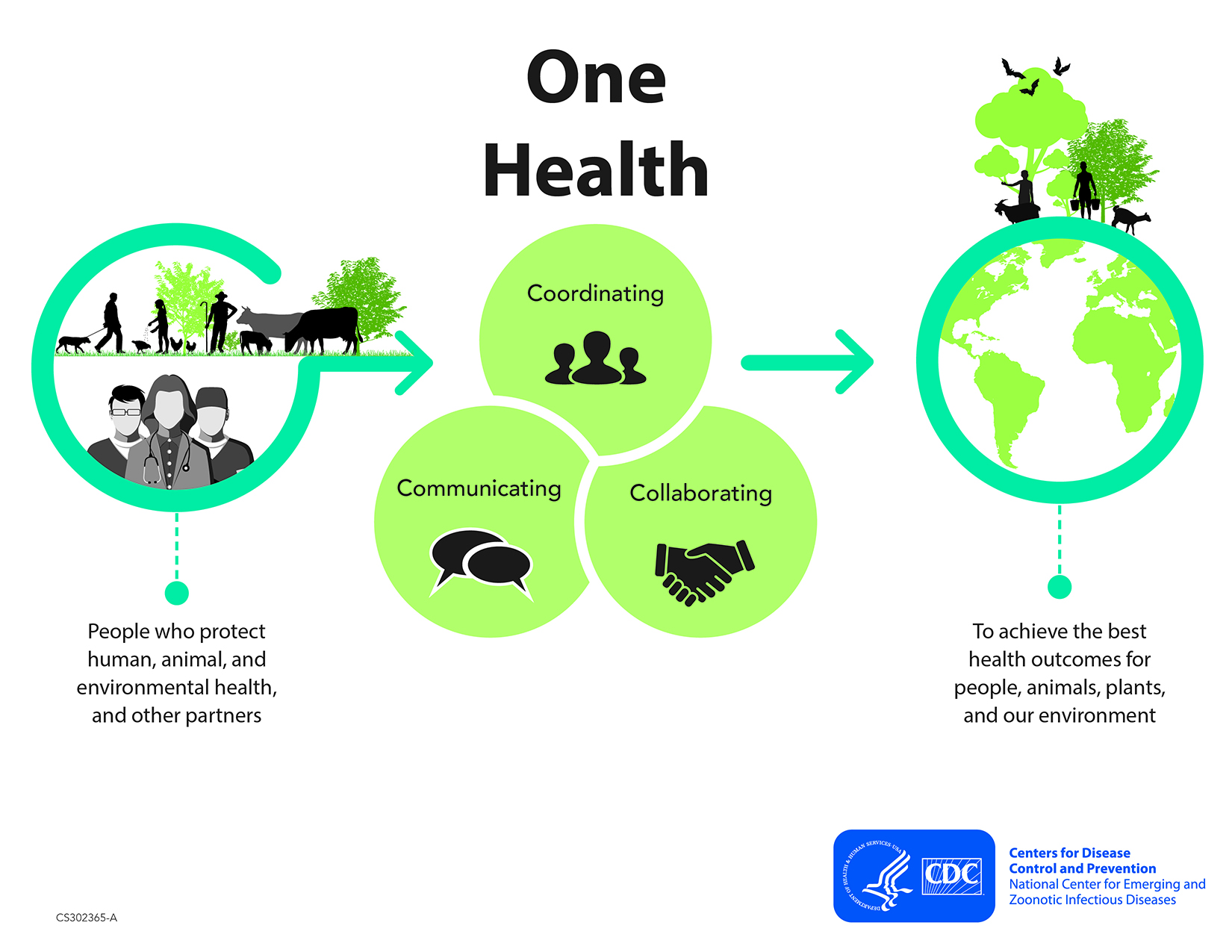Improving People, Animals, and Environment Health Through One Health Approach

Photo by Ivan Babydov on Pexels.
The world has been grappling with the COVID-19 pandemic for the last three years. The SARS-CoV-2 virus that put the world on a halt is a zoonotic disease, meaning that the virus can spread between animals and humans. Though the animal source of the virus is still yet to be determined, the COVID-19 pandemic demonstrates the fatality of zoonotic infectious disease and the need for a holistic solution.
The Interconnectedness
As fellow earth inhabitants, it is clear that the lives of humans, animals, and plants are intertwined, though often it’s us that benefit from them. Often, animals can act as an early warning of an emerging human illness, as they are also susceptible to some of our diseases. Apart from COVID-19, diseases such as Salmonella infection, rabies, and ebola are also considered infectious zoonotic diseases.
As the human population grows and animal habitats decline due to environmental degradation, humans and animals are forced to come in close contact more frequently. Furthermore, disruptions in the weather and environmental conditions also caused animals to be more vulnerable to contracting new diseases. With the chances for diseases to pass between animals and people getting higher, the Centers for Disease Control and Prevention (CDC) established a global campaign called One Health.
A Cross-Sectoral & Holistic Approach
One Health recognizes the interconnection between people, animals, plants, and their environments. Though the similarity between human and animal disease processes has been recognized since the 1800s, the One Health concept started to gain more recognition in recent years. In 2009, CDC established its One Health Office.
In short, the One Health approach seeks to improve the overall health of people, animals, and their shared environments. A healthy environment will affect the well-being of people and animals. Likewise, a healthy population signifies a good, habitable environment. It encourages cross-sectoral collaborations between human, animal, and environmental health experts to tackle issues such as zoonotic diseases, food safety and security, and environmental contamination.

One Health Global Initiatives
In 2010, the United Nations and World Bank encouraged adopting the One Health approach in pandemic preparedness. This further emphasizes the importance of global adoption of the One Health approach, especially in light of the recent COVID-19 pandemic.
Therefore, the CDC One Health Office is taking a global step in creating a strategic, targeted approach to controlling and preventing infectious diseases. Projects such as workshops, collaborative research, and international discussions are held to improve global health conditions for people and animals. Eventually, the future of sustainable living conditions lies in leaving no one behind, including animals, plants, and the environment.

Co-create positive impact for people and the planet.
Amidst today’s increasingly complex global challenges, equipping yourself, team, and communities with interdisciplinary and cross-sectoral insights on sustainability-related issues and sustainable development is no longer optional — it is a strategic necessity to stay ahead and stay relevant.

Kresentia Madina
Madina is the Assistant Manager of Stakeholder Engagement at Green Network Asia. She holds a bachelor’s degree in English Studies from Universitas Indonesia. As part of the GNA In-House Team, she supports the organization's multi-stakeholder engagement across international organizations, governments, businesses, civil society, and grassroots communities through digital publications, events, capacity building, and research.


 Embracing the Business Value of Sustainability
Embracing the Business Value of Sustainability  American Farmers Call for Government Support Amidst PFAS Contamination
American Farmers Call for Government Support Amidst PFAS Contamination  Asia Pacific’s SDG Progress Faces Major Setbacks
Asia Pacific’s SDG Progress Faces Major Setbacks  Exploring the Bidirectional Relationship Between Olympic Games and the Environment
Exploring the Bidirectional Relationship Between Olympic Games and the Environment  The Hidden Threat of Tire Pollution to Salmon Populations
The Hidden Threat of Tire Pollution to Salmon Populations  Understanding the Climate-Care Nexus
Understanding the Climate-Care Nexus